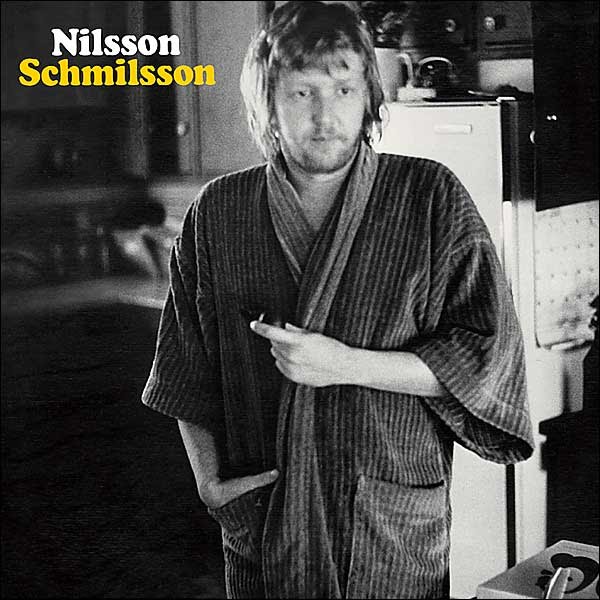Harry Nilsson was something of an anomaly in the music industry. He was undeniably a top-draw songwriter, however the majority of his best known hit singles were covers. He never performed live, yet such was his reputation as a hell-raiser and general mischief maker, it has subsequently clouded the fact that he was a genuinely great writer and vocalist.
Nilsson Schmilsson was his most commercially successful album, largely down to the fact that it contains his biggest hit single, his much-celebrated cover of Badfinger’s “Without You”. Such was the potency of Nilsson’s stirring cover, that two decades later Mariah Carey would attempt to copy his version, resulting in mega-sales and belated recognition of Badfinger’s two writers Pete Ham and Tom Evans (both of whom had sadly taken their own lives since the mid 70s), but ultimately had minimal artistic validity.
It also boasted Nilsson’s follow-up single to his biggest hit in “Coconut”, a song now familiar through it’s wide usage throughout film and television, though at the time a bizarre jokey contrast to the power-ballad of “Without You”. To drive home the jump in styles, “Coconut” also follows “Without You” on the album.
The whole of Nilsson Schmilsson is punctuated by such stylistic leaps, as Nilsson shows his range as a writer and a performer, as he pinballs between pure pop (“Gotta Get Up”), a sort of big band blues (“Down”), rock and roll (“Jump Into the Fire” – hell it even has a drum solo which isn’t annoying. And check out that bass!), power ballads and even walks the line between downbeat singer-songwriter introspection and orchestral bombast (“I’ll Never Leave You”). In lesser hands such stylistic leaping about can often result in a fractured sounding album, however it’s all expertly tied together by Richard Parry’s well-judged production and Nilsson’s own career-best performances.
The majority of Nilsson’s albums are worthy of investigation, but Nilsson Schmilsson is the album where he went all out to demonstrate just how diverse he could be, resulting in an album which best shows the range of his abilities without being a compilation. At just over 35 minutes, it’s an album that covers a lot of ground without beginning to outstay its welcome, yet still does all it can to demonstrate just what a special talent Harry Nilsson was.














No Comment